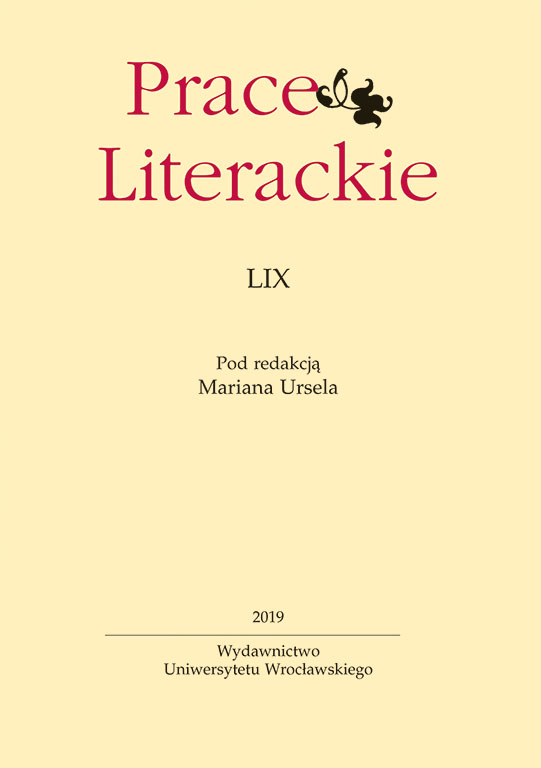

Artykuły

The article Death delayed indefinitely. Edward Stachura philosophizing on time, death and eternity is an attempt to read Stachura from a different side than as a poet, bard and mediocre singer. It is a compilation of the writer’s various texts, but the leading one is a little-known work called Everything is poetry. The story-river (edited by H. Bereza, Z. Fedecki, K. Rutkowski, vol. 4, Warsaw 1984). Stachura transforms into almost a sage, into a philosopher who tries to create elementary definitions of the world, people, time and eternity. He believes that there is no such thing as “nothing” like death, which would mean the definitive end. Thus, he proves that he is not only an “extreme” creator, but one who seeks hope and gaps in describing and understanding the world. The writer attempts to describe eternity, to visualize it, to grasp death as a transition from the „non-our-form-life” to, it seems, a better place. He even changes the forms of talking about eternity — he uses the invented appropriate verb, the infinitive “to be”, which does not take into account the existence of any time . This is the term “perpetual time”. There is no place to distinguish the present, future or past, because eternity is a “measure”, we always find it in the moment of lasting. Therefore, eternity has no beginning or end, unlike time. These concepts of Stachura mainly dictate fear to the end. Thus, he tries to reformulate the common patterns in thinking about death and passing away. Ultimately, it is a study of broadly understood optimism of Stachura, underestimated in his work on a daily basis.